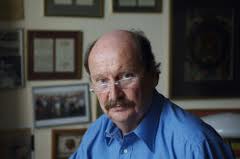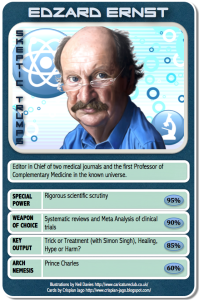Originally published Thursday, Sept. 14, 2013
Imagine: you consult your doctor and he says: “I am so sorry, but I have bad news: the tests have shown that you have cancer”. You go home and feel as though someone has hit you with a sledge hammer. You cry a lot and your thoughts go round in circles. A complete nightmare unfolds; you sometimes think you are dreaming but reality soon catches up with you.
A few days later, you have an appointment with the oncologist who explains the treatment plan. You feel there is no choice and you agree to it. After the first chemotherapy, you lose your hair, your well-being, your dignity, your control and your patience – time to investigate what else there is on offer. There must be an alternative!
By then lots of well-wishers will have mentioned to you that the conventional route is but one of many: there are, in fact, alternatives!!! You go on the internet and find not just a few, you find millions of websites promoting hundreds of solutions – anything from diets to herbal remedies, from homeopathy to faith-healing. All are being promoted as cures for your cancer, and all are free of those nasty side-effects which make your life hell at the moment. You think “there is a choice after all”.
Who would not be tempted by these options advertised in the most glorious terms? Who would not begin to distrust the oncologists who kindly but firmly insist that ‘alternative cancer cures’ are bogus? Who would not want to get rid of the cancer and the side-effects in one genial master-stroke?
Cancer patients yearn for hope and are extremely vulnerable to such influences. I do not know a single one who, faced with the diagnosis and all it entails, has not looked at the ‘alternatives’. This is why it would be so very important that the websites informing patients and their carers convey accurate and responsible information. But do they?
One of our research projects at Exeter had been aimed at assessing the quality of the websites advising patients on alternative treatments for cancer. For this purpose, we evaluated a total of 32 sites which cancer patients were most likely to consult according to pre-defined criteria – in other words, we assessed the most frequented websites for cancer.
Our results were shocking: many of these sites were of poor quality and most of them recommended a plethora of unproven treatments for cancer, most frequently herbal remedies, diets and mind-body therapies. In our estimation, at least three of them were outright dangerous and had the potential to harm patients.
The level of misinformation in this area is sickening. Patients are being sold false hope by the truck-load. Yet they deserve better; they deserve impartial information on their illness and the best treatment for it – cancer patients especially so. What they get instead is a total disgrace: commercially driven lies about ‘treatments’ which are not just unproven but which would, if used as instructed, hasten their death. Some alternative therapies have potential for palliative and supporting care, BUT NONE OFFER A CURE OR A REDUCTION OF THE TUMOR BURDEN OR A CHANGE IN THE NATURAL HISTORY OF THE DISEASE.
_____________________________________________________________________________________________________
Edzard Ernst MD, PhD, FMedSci, FSB, FRCP, FRCPEd
Emeritus Professor, Exeter University
 Dr. Ernst qualified as a physician in Germany in 1978 where he also completed his MD and PhD theses. He received hands-on training in acupuncture, autogenic training, herbalism, homoeopathy, massage therapy and spinal manipulation.
Dr. Ernst qualified as a physician in Germany in 1978 where he also completed his MD and PhD theses. He received hands-on training in acupuncture, autogenic training, herbalism, homoeopathy, massage therapy and spinal manipulation.
Later, he became Professor in Physical Medicine and Rehabilitation (PMR) at Hannover Medical School and Head of the PMR Department at the University of Vienna. In 1993, he moved to the UK and became Chair in Complementary Medicine at the University of Exeter. He is founder/Editor-in-Chief of two medical journals (Perfusion and Focus on Alternative and Complementary Therapies).
He has published 48 books and more than 1000 articles in the peer-reviewed medical literature. His work has been awarded with 14 scientific prizes. In 1999, he took British nationality.
His research focussed on the critical evaluation of all aspects of alternative medicine. Unlike most of his colleagues, he does not aim to promote a particular therapy. His goal is to provide objective evidence and reliable information. It is fair to say that this ambition did not endear him to many quasi-religious believers in alternative medicine.
Healthy Skepticism is republishing selections from Dr. Ernst’s blog with permission. Please visit his website at http://edzardernst.com


